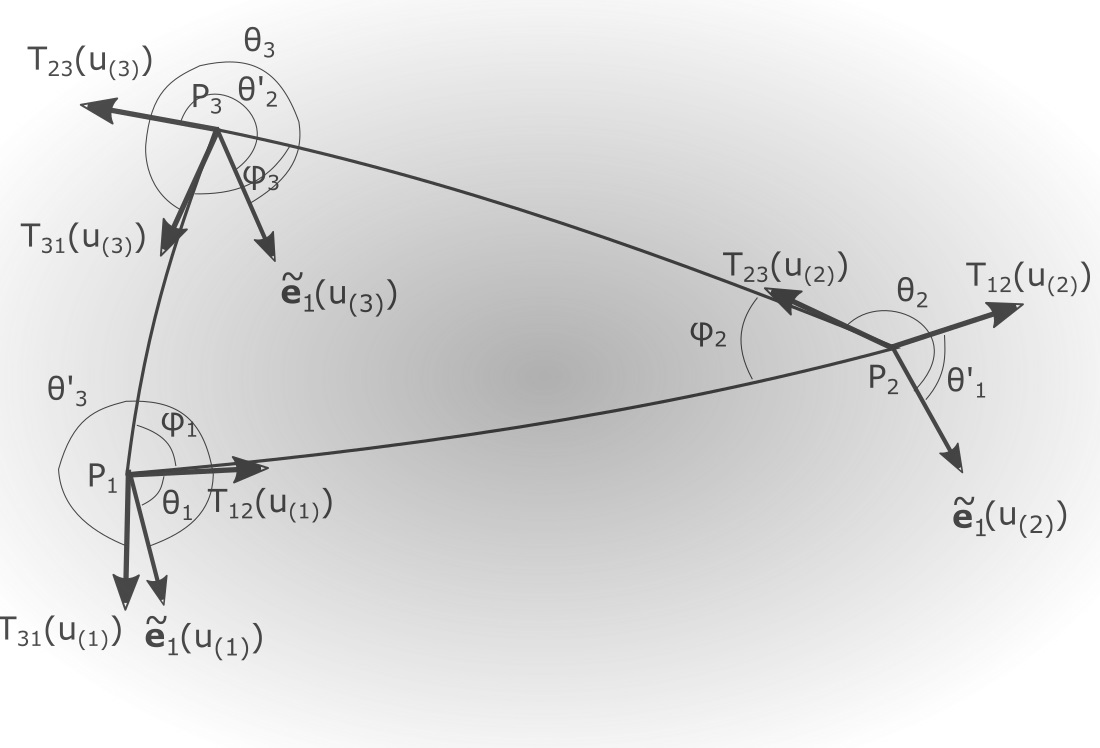
An Elementary Introduction to the Riemannian Geometry of Surfaces
K. Papamichalis Dr. of Theoretical Physics
The subject of this work is the study and the comprehension of the basic properties of a Riemannian
surface, by using almost elementary mathematical concepts. The goal of the author is
to offer to the reader a path to understanding the basic principles of the Riemannian Geometry that
reflects his own path to this objective. In principle, this book is addressed mainly to physicists or engineers with a good background on Mathematical Analysis and Linear Algebra, as well as to any
student interested in Differential Geometry and its applications. Although the present work has
the characteristics of a “standard text”, certainly it is not a strictly mathematical essay; the
principal concern of the author is to put a sequence of milestones leading to the heart of a
Riemannian geometric structure. As a consequence, the proofs of the emerging theorems are outlined
in the form of “steps-to-the-proof”: a sequence of steps is displayed that focus on the main concepts and ideas leading to the final result; but certainly, they do not have the status of a strict mathematical proof.
The adopted route of inquiry presupposes a certain knowledge and adeptness on some mathematical
concepts and technics at a level determined by the relative references (4)-(8). The language and
the mathematical context which is necessary for the description of the properties of the Riemannian
surfaces are gradually been building, starting from the presupposed knowledge. The geometric features of an abstract geometric surface are developed as a generalization or prolongation of the
corresponding features of a surface immersed in a three dimensional Euclidean or pseudo-Euclidean
space.
In the Appendices we develop a procedure aiming to construct the groups of the
coordinate-transformations which leave invariant a given real function defined on the tangent spaces of a Euclidean or pseudo-Euclidean space.
ISBN 978-960-93-9555-7
Download the book by clicking on the image
OR...
Read it straight on the following area